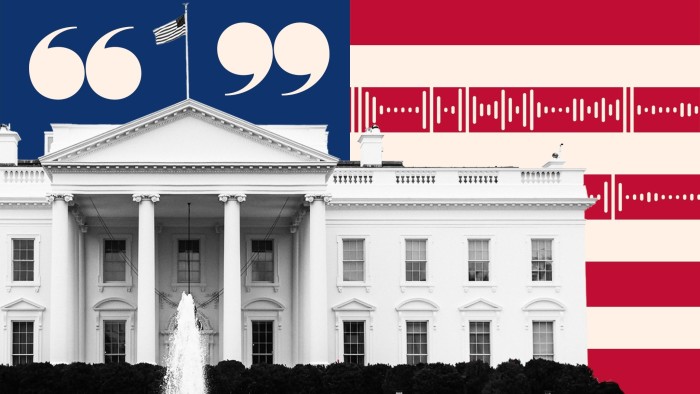Donald Trump will not face sentencing over his “hush money” conviction until after the US presidential election on November 5, removing the last significant legal flashpoint from the Republican candidate’s calendar before Americans go to the polls.
With less than two months to go until the election, Justice Juan Merchan on Friday granted Trump’s request to further delay the Manhattan proceeding, which had been scheduled for later this month. He set a new sentencing date for November 26.
The judge said maintaining the September 18 sentencing date was “fraught with complexities”, and that he was treating Trump similarly to other criminal defendants whose sentencing hearings are repeatedly postponed.
Lawyers for the former president had argued last month that it would be “personally and politically prejudicial to President Trump and his family, and harmful to the institution of the presidency” for the proceedings to take place before November, even if any punishment imposed was subsequently reversed.
The office of Manhattan district attorney Alvin Bragg, who brought the case, had not opposed the request to delay sentencing, saying it would defer to the court.
Trump responded to the decision in a post on his Truth Social platform, saying the sentencing had been postponed “because everyone realises there was NO CASE, I DID NOTHING WRONG!”
The delay in sentencing comes at a critical moment in the race for the White House, with both Trump and his Democratic opponent, US vice-president Kamala Harris, intensifying their campaigning as election day looms and early and absentee voting is set to begin in several states later this month.
While Trump had enjoyed a polling lead over President Joe Biden earlier this year, Harris has all but erased that advantage since he stepped aside and endorsed her as his successor. With the two candidates neck-and-neck in the polls, Trump and Harris will face off next week for a highly anticipated presidential debate in Philadelphia.
Trump on Friday claimed the Manhattan case was a “political attack” against him by “Comrade Kamala Harris and other Radical Left Opponents for purposes of Election Interference.” A spokesperson for the Harris campaign did not immediately respond to a request for comment.
Trump was found guilty in May on 34 felony counts of falsifying business records to conceal “hush money” payments to cover up an affair with porn actor Stormy Daniels. He was originally set to be sentenced on July 11. But one day after the US Supreme Court ruled in a separate Trump case that US presidents were entitled to sweeping immunity for their official acts, Merchan agreed to delay the sentencing until September.
Merchan had said he needed more time to weigh whether evidence in the hush money trial, including social media posts and public statements, was inadmissible in light of the high court’s decision.
In a letter to the court in August, Trump’s lawyers argued the former president should be given more time to challenge any ruling on immunity, and there was “no basis for continuing to rush” the sentencing.
Merchan on Friday said he had further adjourned the sentencing “to avoid any appearance — however unwarranted — that the proceeding has been affected by or seeks to affect the approaching presidential election in which the defendant is a candidate”.
He conceded that the case had a “unique place in this nation’s history”, but reiterated that the court was a “fair, impartial, and apolitical institution” and that the decision “best advances the interests of justice”.
Merchan also said that he would rule on November 12 on whether a retrial was necessary.
The decision to delay sentencing is the latest in a number of victories for Trump’s legal team, who have successfully ensured that none of his remaining criminal indictments will proceed to trial before the election.
The two federal cases against the former president — one over the alleged attempt to interfere with the ratification of the 2020 election results and another regarding the retention of classified documents — were quickly bogged down in legal challenges after being brought last year. The election interference case is once again proceeding after the Supreme Court’s July decision, albeit slowly, and there is no chance it makes it to trial before November.
The classified documents case was also plagued by procedural issues. It was ultimately dismissed in July after the judge decided that Jack Smith, the Department of Justice special counsel who brought it, was improperly appointed. That decision is being appealed.
A fourth criminal case against Trump, over alleged election interference in the state of Georgia, has also stalled while a state appeals court hears a request to disqualify the Fulton county district attorney, whose office brought the indictment.
However, Trump is facing a serious threat to his personal finances after losing several high-profile civil lawsuits. He is appealing against a $450mn verdict in a lawsuit brought by the New York attorney-general alleging fraud within his real estate empire, and has been ordered to pay nearly $90mn in two defamation lawsuits brought by the writer E Jean Carroll, who had accused Trump of sexually abusing her and of defamation.
Trump came face to face with Carroll at the 2nd Circuit Court of Appeals on Friday, as he travelled to New York to attend a brief hearing in his appeal against the sexual abuse judgment.
He remained silent during the proceedings, occasionally shaking his head as Carroll’s lawyer spoke, but later lashed out at the writer during a long press conference at Trump Tower.
Trump once again branded all the cases against him “election interference” and claimed the Biden administration was co-ordinating efforts behind the scenes, in order to hurt him in the polls.
He continued to deny ever having known Carroll, but added: “I am running for president . . . and this is not the kind of publicity you like.”
Have your say

Kamala Harris vs Donald Trump: tell us how the 2024 US election will affect you

